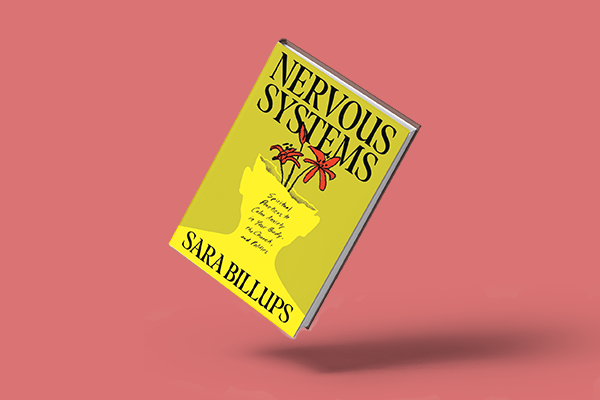I had heard the story of William Wilberforce many times before. He was the parliamentarian who struggled for decades to end the British slave trade, becoming an inspiration to me and countless others. His faith compelled him to take a stand against a grave injustice he was told time and again would never change.
So I have to admit, the first time I read his name on a list of famous people addicted to opioids, I was shocked. How could a man so often held up as a paragon of perseverance struggle with a drug addiction? How could a person with such an important moral mission also be so consumed by his opioid use?
My initial shock, and how some of Wilberforce’s biographers have handled this aspect of his life, says a lot about deeply ingrained societal assumptions about addiction and those who become addicted.
The most widely known telling of Wilberforce’s life, the 2006 movie Amazing Grace, insinuated Wilberforce quit using the substance, but he did not. In the 2007 biography of the same name, author Eric Metaxas argued, “Wilberforce did not appear to become addicted to it; he quite admirably managed to keep his dosage from increasing over the decades.”
This was not the case.
The deepest look at Wilberforce’s opium use comes from John Pollock, a Christian author and the official biographer of Billy Graham. In 1788 at the age of 29, Wilberforce began using at the recommendation of his doctor, likely to treat ulcerative colitis. There were periods when Wilberforce attempted to quit, always without success. In his diaries, Wilberforce acknowledges that if he missed his evening dose, he would wake up sick and be “forced to lie in bed, great sneezing and other signs of spasm.”
By 1796 Wilberforce’s daily dose was 5 grains. Over the decades it rose to 12 grains and would increase in cold weather or when he had other health problems. One observer characterized Wilberforce’s consumption habit as “the constant use of opium in large quantities.”
Pollock details a series of negative effects the drug had on Wilberforce as he “grew more untidy, indolent (as he often bemoaned) and absent-minded as his years went on.” His eyesight declined due to slow opium poisoning and the drug affected his mental health, exacerbating a period of depression. Wilberforce wrote in his diary: “Corrupt imaginations are perpetually rising in my mind and innumerable fears close me in on every side.”
Yet Pollock writes that Wilberforce was “far from addiction.” Responding to another historian’s characterization of Wilberforce’s opium usage as such, Pollock insisted that the scholar “misunderstands, and equates W’s opium usage with a weakness like drunkenness.”
The logic behind this and other dismissals of Wilberforce’s addiction is simple, pervasive, and wrong. It is based on the idea that since Wilberforce showed great moral courage in one area of his life, he could not have experienced addiction. A stalwartly moral person, the logic runs, would not succumb to such a weakness.
My surprise at learning of Wilberforce’s struggle revealed a bias I might not have otherwise admitted. Even after addressing my own struggle with opioid addiction, my knee jerk reaction was to think of those with addiction issues as having a fatal moral flaw. My starting place had been to think of addiction as rooted in the pursuit of pleasure over serious moral concerns. And that those in the midst of addiction have lost all other concerns or desires except for the object of their addiction.
This is far from true. Addiction is pernicious because of the way it makes a person feel compelled to continue substance use or a behavior long after the pleasure is gone. It is characterized by persistence in spite of negative consequences, not because it always feels good. As tolerance builds, feeding an addiction is needed just to feel “normal.”
Instead, addiction often finds its roots in pursuit of moral goods. It could be to address pain —physical, mental or emotional — or to achieve a sense of connection, belonging, or transcendence. Common objects of addiction can provide a temporary sense of all of these things even as they betray the user in the long run. A desire for freedom can lead to a loss of freedom.
The opposite of the addict is not the saint but the “lukewarm,” philosopher Francis Seeburger writes. “The alcoholic or other addict stands in the shadow of the saint. In contrast, those who have never been addicted only because they lack enough passion for it are not even in sainthood’s vicinity.”
One of the earliest uses of the term “addicted” was in the King James translation of the Bible. In 1 Corinthians 16:15 the translator describes a family that “addicted themselves to the ministry of the saints.” The definition of “addicted” has certainly changed along with our medical understanding of how addiction changes the brain. But these early etymological roots also indicate that addiction certainly can look like a kind of worship, deep devotion, and a kind of faith gone wrong.
Persistence in spite of negative consequences describes Wilberforce’s relationship to opium and his commitment to ending the slave trade. Wilberforce was a complicated person — all of us are complicated people — and we do a disservice to his memory and ourselves to gloss over his struggles.
The acknowledgment of Wilberforce’s addiction does not tarnish his story — it completes it. His life can teach us that while addictions are harmful in and of themselves, many of the other negative consequences we often associate with addiction are created or exacerbated by how we treat those with addictions.
Wilberforce was spared much of the stigma, shame, and isolation that come with opioid addiction today. Addiction worsens with disconnection. Our system of punishment for those with addictions is not only ineffective, it often makes things worse. He never went to prison, never needed to buy drugs illegally. The world would not have been a better place had Wilberforce languished in prison instead of fighting the slave trade.
My initial reaction to the story of Wilberforce revealed the assumptions and biases I have held, but it also says a lot about our society and politics. The United States’ approach of criminalizing addiction helped lay the groundwork for the “New Jim Crow.” If Wilberforce had lived under this system, his work to end the slave trade in Great Britain might never have happened.
How many lives were devastated when the primary response to the crack epidemic was to criminalize addiction rather than classify it as an issue of public health?
What are we still losing today when some of our rhetoric has changed but we still spend far more on enforcement and incarceration than treatment?
How many people have died and diseases spread because of cultural resistance to proven methods of harm reduction like syringe exchanges?
The story of Wilberforce seems almost impossible today. But it doesn’t need to be. There is hope that we can end the overdose crisis and dismantle our system of mass incarceration at the same time.
Editor's note: A version of this article appeared in the Wall Street Journal.
Got something to say about what you're reading? We value your feedback!







